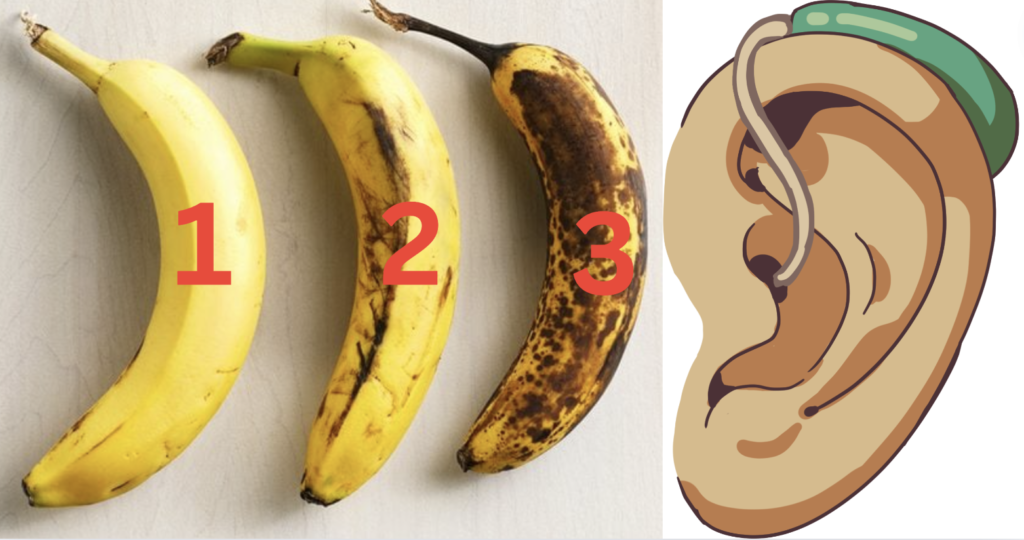Are you bothered by the constant “ringing in ears,” known as tinnitus?
Discovering ways to alleviate this persistent sound can significantly enhance your well-being. Let’s explore straightforward methods to diminish the ringing in your ears, promoting a sense of peace and comfort. Whether you’ve recently noticed these symptoms or have been experiencing them for some time, implementing these tips can effectively manage and reduce tinnitus symptoms.
What are the Causes of Ringing in Ears or Tinnitus?
If your ear keeps ringing, it typically indicates you are experiencing tinnitus, which is the perception of sound in the ears or head without any external source. This sound, such as ringing, buzzing, hissing, or clicking, can vary in intensity and may occur constantly or intermittently. Tinnitus can stem from various factors:
- Noise exposure: Loud music, machinery, or explosions can damage the inner ear.
- Age-related hearing loss: Degeneration of sensory cells in the inner ear over time can lead to tinnitus.
- Earwax buildup: Blockages in the ear canal can cause irritation and ringing.
- Medical conditions: High blood pressure, ear infections, or Meniere’s disease can contribute to tinnitus.
- Medications: Certain antibiotics, antidepressants, and aspirin can induce or worsen tinnitus.
- Head and neck injuries: Trauma to the head or neck can affect the auditory system and lead to tinnitus.
- Psychological factors: Stress, anxiety, and depression can amplify existing tinnitus symptoms.
Recognizing these potential causes is crucial for managing and seeking appropriate treatments for tinnitus.
Effective Home Remedies for Reducing Ringing in Ears (Tinnitus)
Some home remedies may help reduce ear ringing (tinnitus).
Take proactive steps:
While these home remedies may provide some relief for tinnitus, it’s essential to consult with a healthcare professional for proper diagnosis and personalized treatment recommendations. Persistent or worsening tinnitus should be evaluated by a doctor or an ear specialist (audiologist or otolaryngologist) to rule out underlying medical conditions and determine the best course of action.
1. Manage stress:
Stress and anxiety can exacerbate tinnitus. Practice relaxation techniques such as deep breathing, meditation, or yoga to help calm your mind and reduce stress levels.
2. Sound therapy:
Background noise or soothing sounds can help mask the ringing and make it less noticeable. You can use white noise machines, fans, soft music, or nature sounds to create a calming environment.
3. Avoid loud noises:
Protect your ears from loud noises and reduce exposure to loud environments whenever possible. Use earplugs or earmuffs when attending concerts, using power tools, or being around loud machinery.
4. Ear hygiene:
Keep your ears clean by gently washing the outer ear with mild soap and water. Avoid using cotton swabs to clean inside the ear canal, as this can push earwax deeper and potentially worsen tinnitus.
5. Limit caffeine and alcohol:
Both caffeine and alcohol can worsen tinnitus for some people. Try reducing your intake to see if it helps alleviate symptoms.
6. Healthy lifestyle:
Maintain a healthy diet and exercise regularly to improve overall circulation and reduce the severity of tinnitus symptoms.
8. Acupuncture or acupressure:
Some individuals report relief from tinnitus through acupuncture or acupressure treatments. These techniques are believed to help balance the flow of energy in the body and may alleviate symptoms.
While these home remedies may provide some relief for tinnitus, it’s essential to consult with a healthcare professional for proper diagnosis and personalized treatment recommendations.
Persistent or worsening tinnitus should be evaluated by a doctor or an ear specialist (audiologist or otolaryngologist) to rule out underlying medical conditions and determine the best course of action.
Fruits Reduce Ringing in Ears Naturally!
Certain fruits are believed to have properties that could potentially help reduce tinnitus symptoms. While scientific evidence is limited, these fruits are often recommended for their potential antioxidant and anti-inflammatory effects, which may benefit overall ear health and reduce the severity of tinnitus:
Pineapple: Rich in bromelain, an enzyme with anti-inflammatory properties that may help reduce inflammation in the body, including in the ears.
Bananas: High in potassium, which helps regulate fluid balance in the body. Maintaining proper fluid balance can support ear function and potentially reduce tinnitus symptoms.
Papaya: Contains vitamin C and antioxidants, which can help strengthen the immune system and reduce oxidative stress in the body, possibly benefiting ear health.
Watermelon: High in vitamins A, C, and antioxidants like lycopene, which may have anti-inflammatory effects and support overall health, including ear function.
Kiwi: Rich in vitamin C and antioxidants, which help boost the immune system and reduce oxidative stress in the body.
While incorporating these fruits into your diet may provide some nutritional benefits for overall health and potentially aid in managing tinnitus, it’s important to note that diet alone may not eliminate tinnitus symptoms. It’s essential to consult with a healthcare professional for proper evaluation and personalized treatment recommendations if you are experiencing persistent or bothersome tinnitus.
Natural Remedies for Ringing in Ears: Find Relief Today!
Discover these natural solutions to alleviate ringing in ears, offering you effective relief without invasive treatments. Take charge of your tinnitus symptoms naturally and improve your quality of life starting now.


